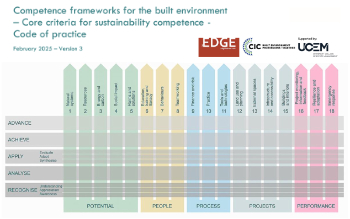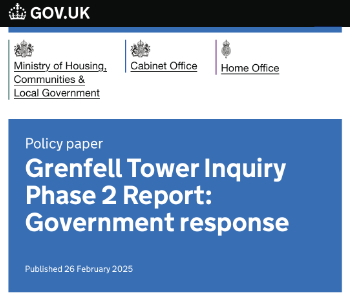Simple payback for energy savings
According to Approved document L, Conservation of Fuel and Power, Volume 2: Buildings other than dwellings, 2021 edition incorporating 2023 amendments, the term 'simple payback' refers to:
The amount of time it will take to recover an initial investment through energy savings, calculated by dividing the marginal additional cost of implementing an energy efficiency measure by the value of the annual energy savings achieved by that measure taking no account of VAT.
When making this calculation, the following guidance should be used:
- The marginal additional cost is the additional cost (materials and labour) of incorporating, for example, additional insulation – not the whole cost of the work.
- The cost of implementing the measure should be based on prices current at the date when the application is made to the building control body and be confirmed in a report signed by a suitably qualified person.
- The annual energy savings should be estimated using the National Calculation Methodology Modelling Guide.
- The energy prices that are current when the application is made to the building control body should be used when evaluating energy savings. Current prices are given on the BEIS website, at: https://www.gov.uk/government/collections/quarterly-energy-prices.
Typically, an initial investment, in for example the achievement of U-values, will be considered economically feasilble if the simple payback period is not greater than 15 years. However, other periods may be considered economically feasible for other elements.
[edit] Related articles on Designing Buildings
Featured articles and news
CIOB student competitive construction challenge Ireland
Inspiring a new wave of Irish construction professionals.
Challenges of the net zero transition in Scotland
Skills shortage and ageing workforce hampering Scottish transition to net zero.
Private rental sector, living standards and fuel poverty
Report from the NRH in partnership with Impact on Urban Health.
.Cold chain condensing units market update
Tracking the evolution of commercial refrigeration unit markets.
Attending a conservation training course, personal account
The benefits of further learning for professsionals.
Restoring Alexander Pope's grotto
The only surviving part of his villa in Twickenham.
International Women's Day 8 March, 2025
Accelerating Action for For ALL Women and Girls: Rights. Equality. Empowerment.
Lack of construction careers advice threatens housing targets
CIOB warning on Government plans to accelerate housebuilding and development.
Shelter from the storm in Ukraine
Ukraine’s architects paving the path to recovery.
BSRIA market intelligence division key appointment
Lisa Wiltshire to lead rapidly growing Market Intelligence division.
A blueprint for construction’s sustainability efforts
Practical steps to achieve the United Nations Sustainable Development Goals.
Timber in Construction Roadmap
Ambitious plans from the Government to increase the use of timber in construction.
ECA digital series unveils road to net-zero.
Retrofit and Decarbonisation framework N9 launched
Aligned with LHCPG social value strategy and the Gold Standard.
Competence framework for sustainability
In the built environment launched by CIC and the Edge.
Institute of Roofing members welcomed into CIOB
IoR members transition to CIOB membership based on individual expertise and qualifications.
Join the Building Safety Linkedin group to stay up-to-date and join the debate.
Government responds to the final Grenfell Inquiry report
A with a brief summary with reactions to their response.
























